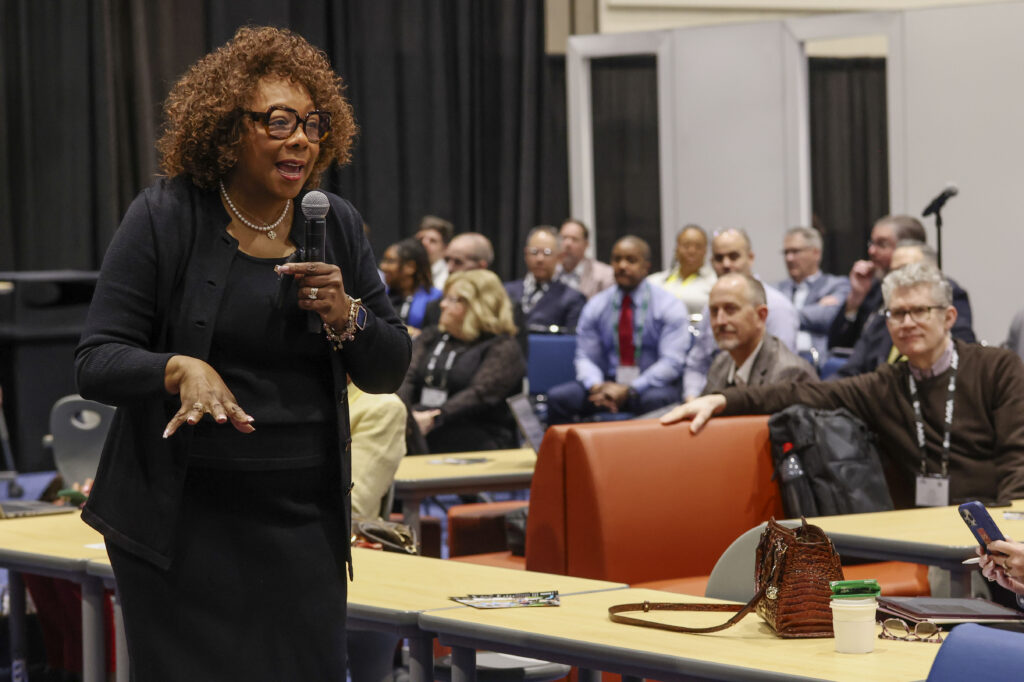For school leaders, infusing your spiritual beliefs into your daily work can be challenging at first glance, but it’s possible to allow your faith to guide you as an educational leader, according to Deborah L. Wortham, a retired superintendent and author of Setting the Atmosphere for Leaders and Learners. She shared her views on this subject during a Thought Leader session Thursday at the AASA national conference.
Faith-filled leadership isn’t just a theological concept, Wortham told the crowd. It’s a leadership mindset that fosters resilience to build strength through challenges, she said. It strengthens decision making to build community and connection. And it nurtures hope and confidence to create a positive vision for the future.
“It’s allowing the good Lord to lead you and guide you in making decisions,” Wortham said.
The best-selling author is a former superintendent of the school district in York, Pa,, and the Steelton-Highspire School District in Steelton, Pa. She was the first African-American female superintendent of the East Ramapo Central School District in Spring Valley, N.Y. She retired from public school administration last July and now works as a consultant.
During her talk, Wortham used real-life examples to help illustrate how educators can navigate challenges with a faith-filled mindset. For example, when working with a student who is struggling academically, it’s important for teachers to have faith in their own ability as well as in their student’s potential, she said.
In that case, Wortham touted the benefits of the “I do. We do. You do” model as part of the student assessment. The framework is designed to remind educators to have faith — and be mindful that if a student isn’t successful at first, it’s important to try additional strategies. It encourages educators to never give up on a student and have confidence in the people in front of you.
“Our faith matters, it matters, and when you tap into it, then you will receive the creativity and the capacity from on high to succeed,” Wortham said.
The Thompson’s Leadership Bible, in particular, helped to guide her understanding about the power of Biblical concepts in decision-making and using integrity in the workforce, she said. The book highlights leadership lessons and draws connections between biblical leaders and modern leadership principles. As she wrapped up her talk, Wortham encouraged conferencegoers to just believe, move forward, and persevere despite the challenges thrown their way.
“Go where you are led to serve, and then it’s not about you,” Wortham said.
(Ecoi Lewis, a grad student in the marketing and communications program at Loyola University New Orleans, is an intern reporter with AASA’s Conference Daily Online.)


